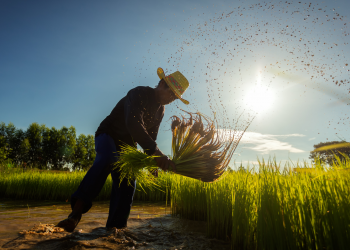Putting farmers first: BIC releases statement on food security
The Baha'i International Community (BIC) in Geneva launched a statement marking the recent 2021 United Nations Food Systems Summit, inviting UN officials, ambassadors of Member States, non-governmental organizations and others to discuss the need to include farmers’ knowledge in food security policy.
The statement, “‘The First Active Agent in Human Society’: Putting Farmers at the Heart of Food Security Policy,” as well as a dialogue hosted by the BIC during the Food Systems Summit, come as the need to rethink food systems appears ever more urgent and highlights the importance of rural actors informing national and international policies.
“There are two sources of knowledge that are crucial in ensuring the development of resilient food systems: scientific knowledge and the experience and expertise of farmers at the local level,” said Simin Fahandej, a BIC Representative to the UN in Geneva. “The BIC statement explores how current food systems might change if the knowledge and expertise generated by smallholder farmers, local communities and rural agricultural actors were considered as essential and complementary to scientific research. It is an invitation to further explore the importance of including the experience and knowledge of farmers and rural communities in international food and agricultural policy-making.”
Using methods and knowledge developed over thousands of years, farmers and smallholder agricultural actors “constitute an indispensable foundation on which virtually all other productive processes rest ... [and] witness firsthand the utility of specific techniques and practices as well as the social and environmental implications of adopting them,” the statement says. But farmers are repeatedly excluded from decisions on how agricultural and food security policies are implemented, often leading to profit-driven policies made by a remote few, reinforcing exploitation and inequalities.
The statement further says that “one way to address these challenges is to create conditions that allow for the perspectives and experiences of farmers to be connected and interlinked with the knowledge generated through centers of research and technological innovation,” describing the concept of inclusive systems for generating knowledge.
“In an interdependent world where problems can no longer be considered the issues of one nation and one community, it is timely that the international community gives deep thought to this issue,” added Ms. Fahandej. “Agriculture is considered the world’s biggest employer and the farming system produces much of the world’s food. And given its importance, it begs the question, what would current food systems, which also have implications for economic systems, look like if the farmer was considered as the first active agent in human societies?”
